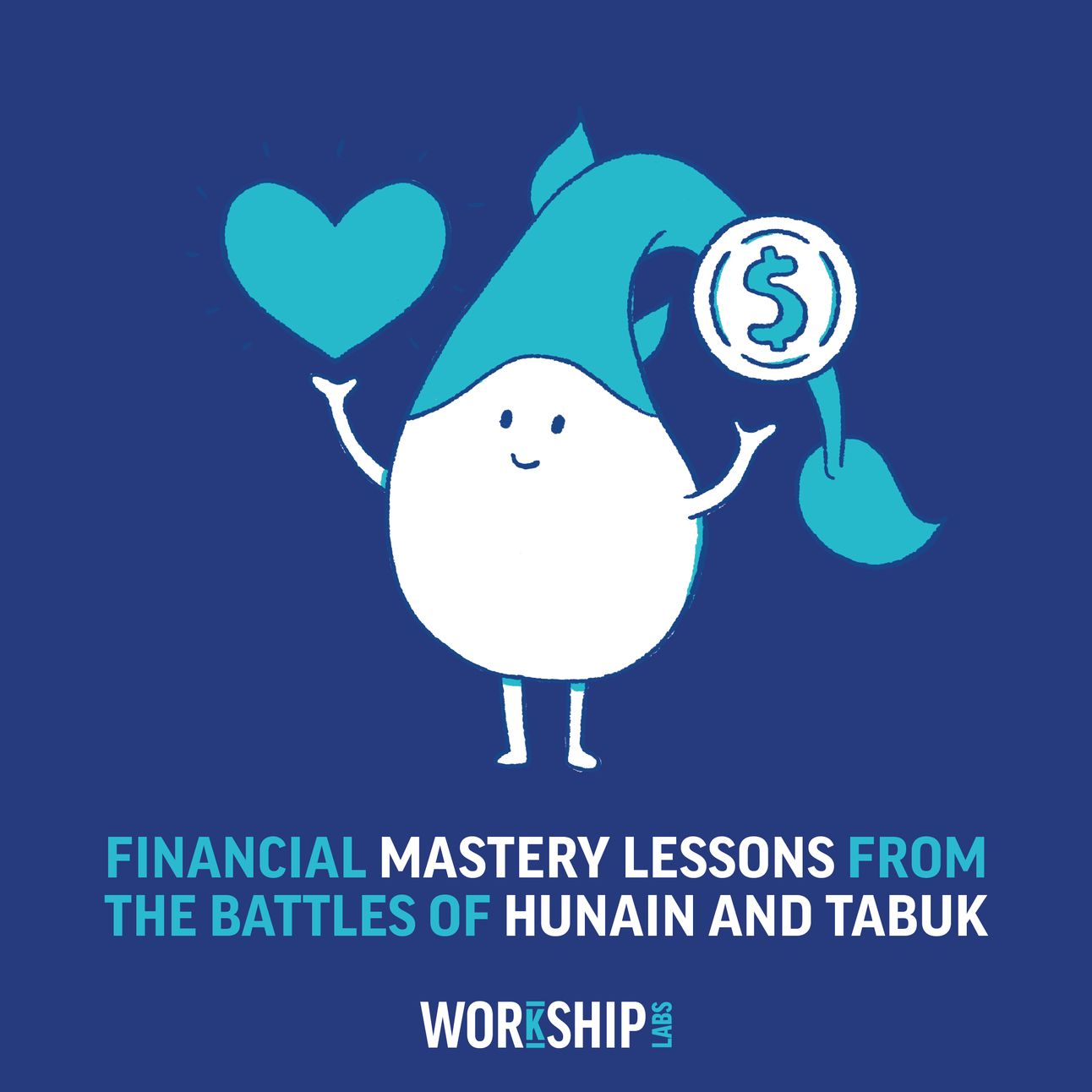- Workship Labs
- Posts
- The Prophet's Financial Mastery: Lessons from the Battles of Hunain and Tabuk
The Prophet's Financial Mastery: Lessons from the Battles of Hunain and Tabuk
Lesson 38: Financial Mastery
Al Salam Alaikum 🌱
When we examine the financial strategies employed by Prophet Muhammad (peace and blessings upon him) during the pivotal battles of Hunain and Tabuk, we discover a masterclass in resource management that transcends time.

As the head of the Islamic state at that time, the Prophet demonstrated how divine guidance and prophetic wisdom can create sustainable financial systems that serve both immediate needs and long-term prosperity.
In our modern era of complex financial markets and entrepreneurial ventures, these prophetic principles offer us as faith-first entrepreneurs a blueprint for building businesses that are not only profitable but also spiritually fulfilling and socially responsible.
💰️ The Prophetic Financial Framework
The Prophet’s approach to financial management rested on three fundamental functions that every successful leader must master:
1) Creation of Financial Resources:
The Prophet established diverse revenue streams that ensured the sustainability of the Islamic state:
Zakat: The systematic wealth redistribution system
Ushr: One-tenth of agricultural produce, ensuring food security
Khums: One-fifth of war spoils, funding defense and public welfare
Voluntary Contributions: Inspiring generous giving from the community
2) Strategic Application of Resources:
Rather than hoarding wealth, the Prophet (peace and blessings be upon him) emphasized the circulation of resources for maximum benefit. This principle is beautifully captured in the Quranic verse from Surah Al Baqarah (2:3), which praises those who

3) Preservation and Reinvestment
The Prophet’s concerns about owing seven dirhams, as narrated by his wife Umm Salama, demonstrates his commitment to financial accountability and the immediate deployment of resources for Allah’s cause.
1️⃣ Cause Study 1: The Battle of Hunain- Transparent Resource Management
The Battle of Hunain provides us with a powerful example of financial transparency and ethical resource distribution.
When the Prophet took a single hair from a camel and declared, “O, you people, it is not permissible for me to take even the equivalent of this from the Fay’ that Allah has bestowed upon you, except the Khums, and the Khums will come back to you,” he established principles that faith-first entrepreneurs can implement:

2️⃣ Case Study 2: The Battle of Tabuk- Strategic Information and Resource Management
The Tabuk expedition showcased the Prophet’s sophisticated approach to both financial and information management.
This military project required precise timing, accurate intelligence, and substantial financial resources.
The hadith of Abdullah bin Umar reveals two types of participants in any venture.
1) The Conscious Contributors: Those who engage with divine purpose, support their companions, and spend their best wealth willingly in the path of Allah
2) The Reluctant Participants: Those who view physical and financial contributions burdensome taxes rather than investments

✖️ The Multiplication Effect: Divine Returns on Investment
The Prophet’s teachings reveal a remarkable principle about spending in Allah’s cause.
According to the hadith of Mu’ad bin Jabal, those who spend in the path of Allah (SWT) while engaging in righteous endeavors receive exceptional returns- not just in the hereafter, but often in this world as well.
The narration states:
“The person who spends funds in the path of Allah while he remains at home shall be rewarded with seven hundred dirhams for every dirham that he spends. On the other hand, the person who himself marches out in the path of Allah and then spends for Allah’s pleasure shall be rewarded with seven hundred thousand dirhams for every dirham.”
💝 Lessons from the Companions: Generosity as a Business Strategy
The examples of Sayidna Abu Bakr Al Sadeeq and Sayidna Uthman Ibn Affan (may Allah be pleased with them) demonstrate how generous giving can become a cornerstone of long-term success:
Sayidna Abu Bakar’s Total Commitment: When he donated his entire wealth (4,000 dirhams) and was asked what he left for his family, he replied, “I left them Allah and His Messenger.” This wasn’t financial recklessness but ultimate trust in divine provision.
Sayidna Uthman’s Secured Future: The Prophet’s declaration that “Nothing that Uthman does after this can cause him harm” came after his generous contributions, suggesting that sincere giving creates a form of spiritual insurance.
🔑 Key Takeaways
🔑 Financial Transparency Builds Trust: The Prophet’s declaration at Hunain about taking only his rightful share established a standard of transparency that faith-first entrepreneurs must embrace.
🔑 Diversify Revenue Streams: Just as the Prophet established multiple sources (Zakat, ushr, khums, donations), successful businesses need varied income sources for stability.
🔑 Generous Giving Creates Abundance: The examples of Sayidna Abu Bakar and Sayidna Uthman demonstrate that strategic generosity often leads to unexpected returns and divine protection.

Take 10 minutes this week to reflect on this simple question:
“If the Prophet (peace be upon him) could declare at Hunain that he wouldn’t take even a hair’s worth beyond his rightful share, what would change about how I handle my finances if I applied this same level of transparency and accountability?”
Write down three specific things that come to mind. No need to act on them immediately- just let the prophetic standard challenge your current approach to money, resources, and financial decision-making.
Sometimes the most powerful changes begin with honest self-reflection.
If this reflection sparked something in you, please consider sharing it with your righteous suhba who could benefit from these prophetic principles. Knowledge shared is knowledge multiplied, inshAllah 🌱
🤲 Closing Dua
“May Allah bless our endeavors and guide us in implementing these noble prophetic principles in our businesses.”
Ameen
Reply